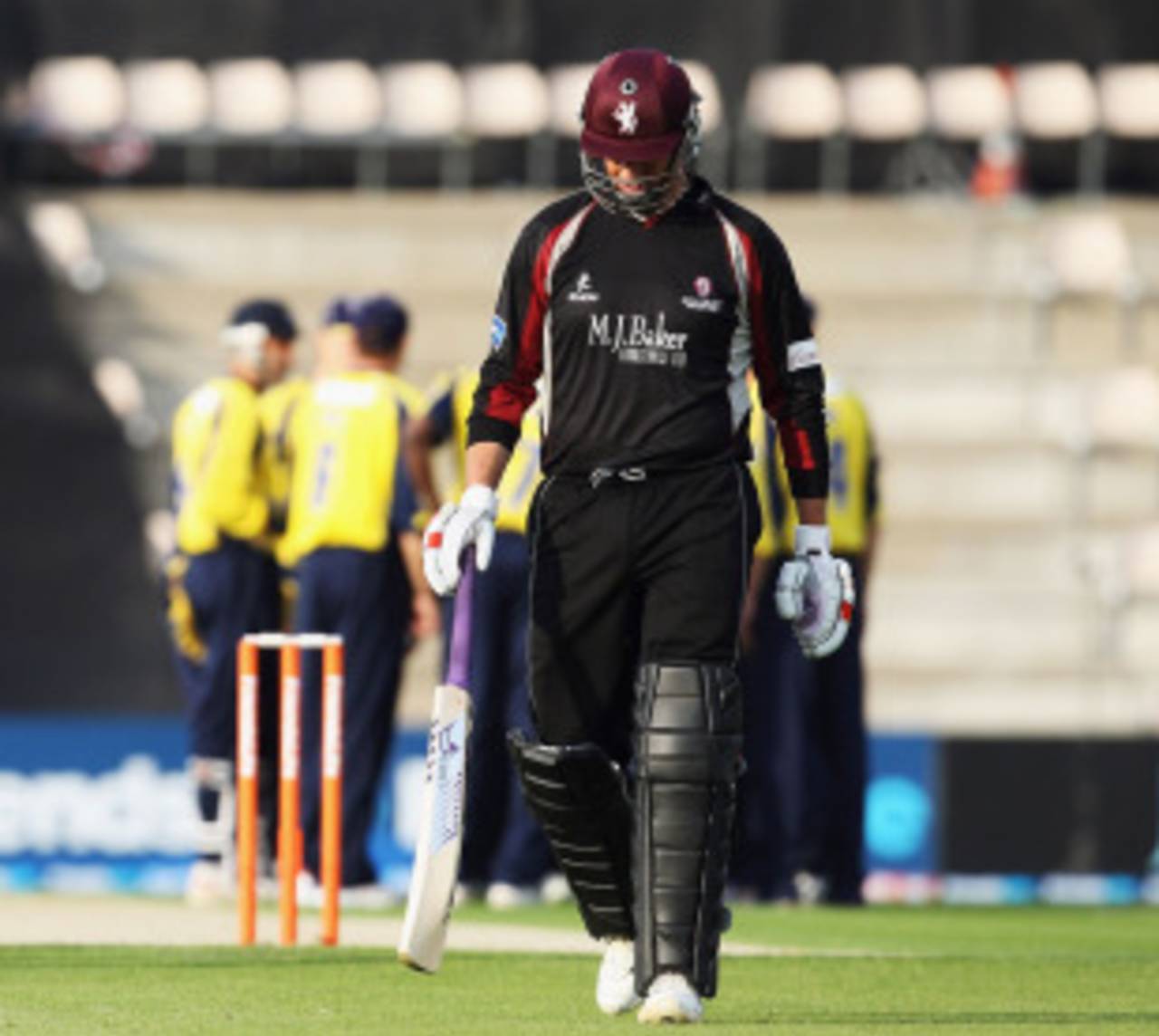The Professional Cricketers' Association (PCA), the ECB umpires' manager and senior English umpires will meet next week in an attempt to quell the recent spate of poor behaviour in county cricket which has led to two leading players being suspended.
Sussex's Murray Goodwin became the second player within four days
to be banned by the ECB on disciplinary grounds, following Essex captain James Foster's
two-match suspension, amid increasing concern about behaviour standards in the domestic game. Somerset could become the second county to have their captain suspended when Marcus Trescothick faces a disciplinary panel next week.
The PCA is confident it isn't an issue that is getting out of hand, but is reacting to player concerns about the feedback system that is in place to evaluate umpires in the hope that a more efficient process can ensure better relations between players and officials.
"We have talked to the players and been proactive about it," Angus Porter, the PCA chief executive, told ESPNcricinfo. "What we have realised is that at the moment players don't have as much confidence as we'd like in the feedback process on umpiring performances.
"That's something we've acknowledged and will be sitting down with Chris Kelly, the umpires' manager, and some of the senior umpires next week to see if we can improve the process. I think it's important that the players have a mechanism for giving feedback and that they have the confidence in it so that they don't get frustrated."
Porter believes that part of the problem stems from the introduction of the DRS at international level which now gives players the ability to question the umpires' decisions. Although the system was designed to eliminate major errors it is more often used in 50-50 situations. The ICC has said it believes the system has aided on-field behaviour, but the problem is that it will never be a system available in domestic cricket.
"I'm not sure in this context the DRS has helped because it has created an expectation that under certain circumstances you can challenge the umpires' decision," Porter said. "Players have to learn how to manage that. DRS is good, we aren't saying it isn't, but players need to distinguish between the situations they are in."
The ban for Foster came under the 'totting-up' process where five or more offences within a 12-month period brings action from the ECB, but Porter was keen to a stress that a lot of the incidents are of a minor nature when taken on their own.
"If you look at the reports, the charges that are used in the totting-up procedure also include things like high-pitched deliveries as well as behaviour issues," he said. "In Foster's case they were five individual offences that merited not much more than a rap across the knuckles and five offences in 12 months is a level of discipline, I think, most teams sports would be delighted with. Yes, the problem exists but it's at a very low level."
"It's a little like two double-decker buses coming along at once," Ported added. "Some things have gone on in that it means there are two or three cases that have been heard in a short space of time. It is certainly true that in the last couple of years we've seen a bit of an increase in the number of offences, but I think it's wrong to leap to the conclusion that all those offences are connected with dissent for example."
Andrew McGlashan is an assistant editor at ESPNcricinfo
